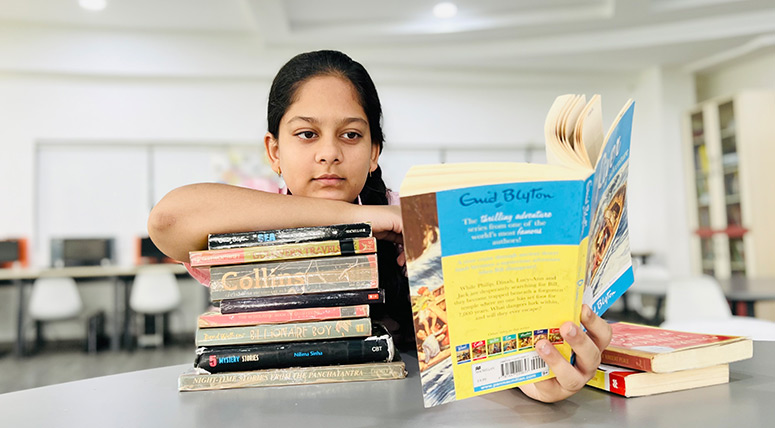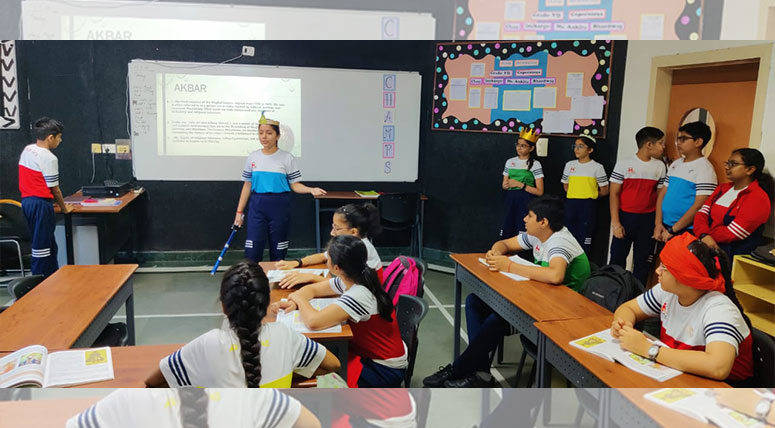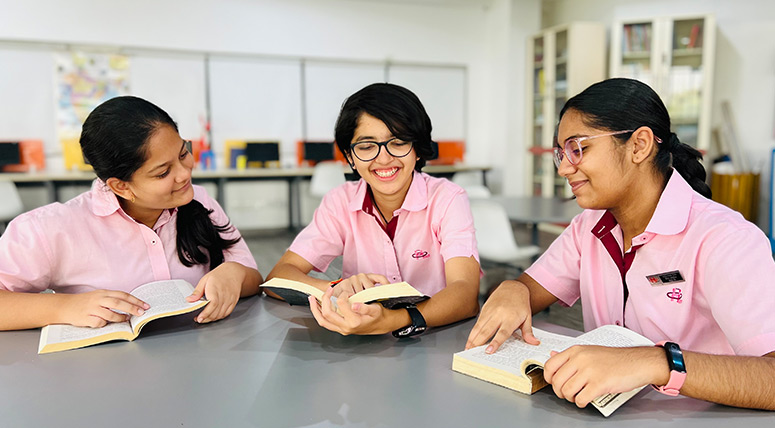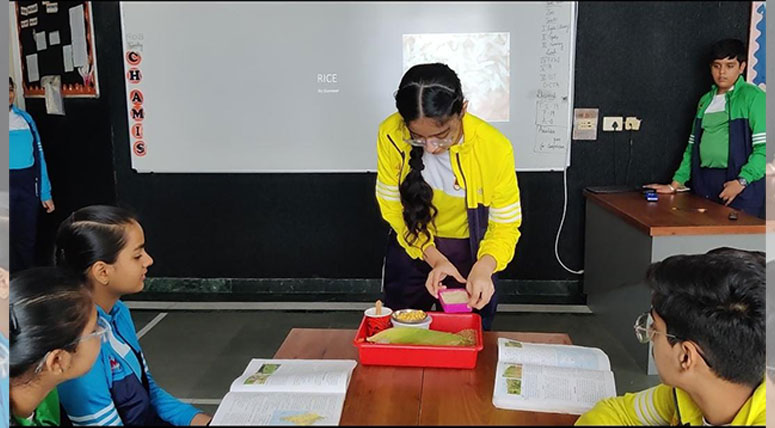Blog
JUDGING BY RESULTS? : CELEBRATE PROGRESS

THE CBSE SELF BELIEF CHANNEL || CBSE BOARD EXAM 2024 || SERIAL 8
Celebrating Progress, Not Just Results: A Lesson in Encouragement
“However Small, Every Achievement Must Be Celebrated.” At Manav Rachna International School 21-C, we believe in celebrating not just the outcomes but also the journey of growth and improvement that each student undertakes.
In our quest for excellence, it’s essential to acknowledge that progress is a powerful indicator of learning and development. Every step taken, every obstacle overcome, and every small victory deserves recognition. By shifting our focus to celebrate progress, an environment is created by us valuing effort, resilience, and continuous improvement. Furthermore, project-based learning has gained traction as an effective pedagogical strategy at MRIS 21-C.
The integrated approach of learning in our school encourages students to think critically, develop problem solving approaches and connect to the real-life scenarios. It helps the children to face the challenges of the real world.
Our teaching perspective is that every kid should be exposed to enriching activities such as flip teaching, inquiry-based learning, comprehension, application, analysis, synthesis, evaluation, and topic integration to help them develop their learning style. Because technology is so vital in our world, we aim to bring it into the classroom wherever possible while still giving plenty of freedom to celebrate the students’ creativity with specific activities and hands-on experiences.
We cultivate a culture of growth mindset at MRIS 21-C, the best middle school of Faridabad, encouraging students to view setbacks as chances to develop. We instill confidence, motivation, and a sense of success by recognizing progress. Students learn to value their efforts regardless of the immediate results, cultivating a lifetime passion of learning.

Experiential learning within our school fosters a culture of exploration, curiosity, and active participation. It encourages students to question, experiment, and discover, nurturing a deeper understanding of concepts that extends far beyond what textbooks alone can offer.
Students could explore social issues firsthand, interact with diverse groups, and analyze societal structures through real-life observations. Debates, role-playing scenarios, or community service projects focused on social causes also immerse students in the practical applications of sociological concepts.
In the realm of politics, our students simulate mock elections or model United Nations sessions, where they negotiate and debate global issues. Analyzing current events, conducting interviews with local politicians or activists, or even organizing political forums within the school can provide practical insights into the functioning of political systems and the complexities of governance.
At our institution, we recognize that learning is not confined to siloed subjects but is a vibrant tapestry interwoven with various disciplines, experiences, and perspectives. The integrated learning approach embodies this philosophy by breaking down barriers between subjects and fostering connections that mirror the complexities of the real world.
By seamlessly merging different subjects and weaving interdisciplinary connections, we empower our students to see the world holistically. Rather than treating topics as discrete entities, they investigate the connections among many fields of study, fostering a more profound comprehension of how information crosses boundaries.
In addition to providing a space for the imparting of knowledge, the top CBSE middle school, MRIS is a center for creativity, a creative laboratory, and an incubator of ideas. We understand the value of incorporating cutting-edge tactics to support conventional approaches in order to better serve the diverse needs and objectives of our student body.

Imagine teaching in a classroom where history and technology coexist, where science and art collide, and where mathematics and literature connect. By encouraging students to use a variety of areas to address problems, this holistic approach fosters critical thinking, creativity, and innovation.
At MRIS 21-C the journey toward innovative teaching and learning pedagogies is a testament to our commitment to providing an enriching, relevant, and empowering education for generations to come. We embrace innovation, celebrate diversity, and empower educators to shape the future of the learners. We continue to explore and embrace these innovative teaching and learning pedagogies, it’s crucial to acknowledge the invaluable role of educators. They are the architects of this educational transformation, adapting, experimenting, and nurturing a culture of continuous improvement.
The importance of inclusiveness and diversity in education cannot be overseen. The inclusive classrooms respect diversity and take into consideration the uniqueness of each child. At MRIS 21-C we provide wide acceptance for a variety of perspectives and learning experiences.
 Each student’s journey is unique, with various challenges and successes. We recognize these individual routes by applauding progress, highlighting the various ways in which growth expresses itself. Every step forward, whether intellectual, social, or personal, is cause for celebration.At MRIS-21C, we emphasize research-based, project-based, and collaborative learning, which contributes to the child’s whole growth.While grades and achievements hold their importance, they are just one aspect of a student’s overall growth.
Each student’s journey is unique, with various challenges and successes. We recognize these individual routes by applauding progress, highlighting the various ways in which growth expresses itself. Every step forward, whether intellectual, social, or personal, is cause for celebration.At MRIS-21C, we emphasize research-based, project-based, and collaborative learning, which contributes to the child’s whole growth.While grades and achievements hold their importance, they are just one aspect of a student’s overall growth.
At MRIS 21-C, we believe in nurturing well-rounded individuals. By celebrating progress holistically, we acknowledge achievements in extracurricular activities, character development, leadership skills, and more.
Finally, as a cornerstone of our educational philosophy, we at MRIS 21-C take satisfaction in applauding progress. We foster a community dedicated to ongoing learning and personal growth by acknowledging and honouring progress. Join us in celebrating the progress of our dedicated students and their mentors.
ADMISSIONS OPEN || SESSION 2024-25 || MANAV RACHNA INTERNATIONAL SCHOOL AUTHOR: Ms. Ankita Bhardwaj, TGT Social Science, MRIS 21C, Faridabad
